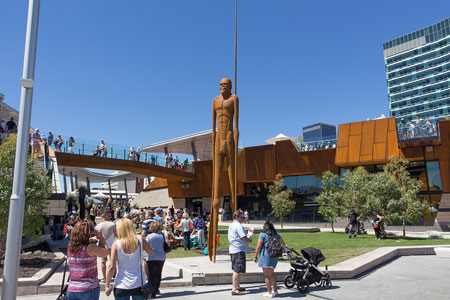Perth Translation Services » Health Medical Translation » Albanian Translator
Albanian Health Medical Translation
We have Albanian translators with experience and background in health and medical translations to complete medical translation requirements, from medical letters and receipts for insurance purposes, to complex medical reports or research papers.
As medical and pharmaceutical Albanian translations is a specialised discipline, not all Albanian translators are able to deliver translations for medical documents. Perth Translation provides medical Albanian translations for documents such as:
- Pre-Clinical Reports
- CMC Documentation
- Clinical Trial Agreements
- Clinical Trial Results
- ICFs
- Investigation Brochures
- Interview Transcripts
- Packaging and Labeling
- Marketing Materials
- Medical Protocols
- Medical Research Papers
- Survey Results
Additional effort in finding the right professional Albanian translator goes a long way in ensuring reliable and consistent quality translations for medical and pharmaceutical documents. Enquire with us today with your project requirement.
Upload your documents for translation
Professional Albanian Translator

Perth Translation provides professional Albanian translation services. You can use the form on this page to upload multiple files for a confirm quote and delivery time. Our Albanian translator is ready to assist with your translation project.
About the Albanian Language
Albanian is an Indo-European language spoken by the Albanians in the Balkans and by the Albanian diaspora, which is generally concentrated in the Americas, Europe and Oceania. With about 7.5 million speakers, it comprises an independent branch within the Indo-European languages and is not closely related to any other modern Indo-European language.
Albanian was first attested in the 15th century and it is a descendant of one of the Paleo-Balkan languages of antiquity. For reasons that are more historical and geographical than specifically linguistic, some modern historians and linguists believe that the Albanian language may have descended from a southern Illyrian dialect spoken in much the same region in classical times.

Medical Translations For All Major Languages
- Arabic healthcare and medical translation
- Chinese healthcare and medical translation
- Catalan healthcare and medical translation
- Croatian healthcare and medical translation
- Czech healthcare and medical translation
- Estonian healthcare and medical translation
- Dutch healthcare and medical translation
- Finnish healthcare and medical translation
- French healthcare and medical translation
- German healthcare and medical translation
- Greek healthcare and medical translation
- Hindi healthcare and medical translation
- Hungarian healthcare and medical translation
- Indonesian healthcare and medical translation
- Italian healthcare and medical translation
- Japanese healthcare and medical translation
- Korean healthcare and medical translation
- Macedonian healthcare and medical translation
- Malay healthcare and medical translation
- Norwegian healthcare and medical translation
- Persian healthcare and medical translation
- Polish healthcare and medical translation
- Portuguese healthcare and medical translation
- Punjabi healthcare and medical translation
- Romanian healthcare and medical translation
- Russian healthcare and medical translation
- Serbian healthcare and medical translation
- Slovak healthcare and medical translation
- Spanish healthcare and medical translation
- Swedish healthcare and medical translation
- Tagalog healthcare and medical translation
- Thai healthcare and medical translation
- Turkish healthcare and medical translation
- Ukrainian healthcare and medical translation
- Urdu healthcare and medical translation
- Vietnamese healthcare and medical translation
About the Albanian Language
Albanian is an Indo-European language spoken by the Albanians in the Balkans and by the Albanian diaspora, which is generally concentrated in the Americas, Europe and Oceania. With about 7.5 million speakers, it comprises an independent branch within the Indo-European languages and is not closely related to any other modern Indo-European language.
Albanian was first attested in the 15th century and it is a descendant of one of the Paleo-Balkan languages of antiquity. For reasons that are more historical and geographical than specifically linguistic, some modern historians and linguists believe that the Albanian language may have descended from a southern Illyrian dialect spoken in much the same region in classical times. Alternative hypotheses hold that Albanian may have descended from Thracian or Daco-Moesian, other ancient languages spoken farther east than Illyrian. Too little is known of these languages to completely prove or disprove the various hypotheses.
The two main Albanian dialect groups (or varieties), Gheg and Tosk, are primarily distinguished by phonological differences and are mutually intelligible in their standard varieties,[14][15] with Gheg spoken to the north and Tosk spoken to the south of the Shkumbin river. Their characteristics in the treatment of both native words and loanwords provide evidence that the split into the northern and the southern dialects occurred after Christianisation of the region (4th century AD), and most likely not later than the 5th–6th centuries AD, hence occupying roughly their present area divided by the Shkumbin river since the Post-Roman and Pre-Slavic period, straddling the Jireček Line.

